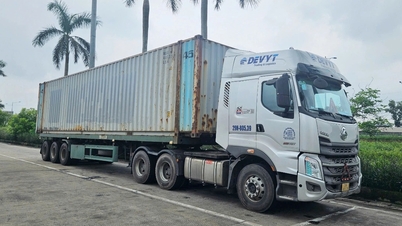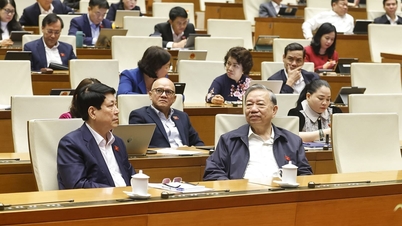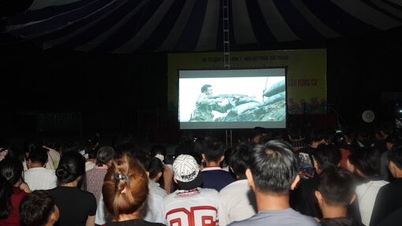In the hustle and bustle of modern work, the image of young employees who devote themselves to work, work overtime, and even consider burnout a "badge of honor" has become all too familiar. Alli Kushne was once such a person, the kind of employee that bosses adore but therapists worry about. She worked late without being asked, answered emails even on vacation, and treated every work message at 11 p.m. as if "a meteorite about to hit Earth."
For many of us, especially Gen Z and millennials, our identities seem to be tied to our productivity. We have unwittingly signed an unwritten contract that success comes at the cost of sacrifice – our time, our health, our personal relationships can all be put on the line in exchange for recognition and advancement.
But this “success” has come at a steep price. Gallup’s latest global report shows that global employee engagement has dropped by 2 percentage points, to 21%. More alarmingly, manager engagement has dropped even more dramatically. The numbers are a wake-up call: the traditional work model is losing its appeal and effectiveness.
From "quietly quitting" to the desire to "live loudly"
Faced with pressure and imbalance, a significant number of workers have turned to "quiet quitting" - silently reducing their efforts at work, only doing the minimum required, as a silent protest. Data from McKinsey and Understanding Society estimates that about 20 - 40% of the workforce is in this state. This is a temporary solution, but is it the optimal path?
Alli Kushner, after becoming a mother, realized that “trying to get through” everything was not only difficult but also unsustainable. Time was no longer an asset she could squander at will. She started making small changes: refusing late meetings, turning off notifications after 6 p.m., dedicating Friday afternoons to deep work so she could truly rest on the weekends. Each of these small acts felt like a tiny “rebellion” against the inherent belief that a good professional must always be available, regardless of personal limitations.
At first, she also intended to choose the path of "quietly quitting her job". But then, she decided to go against the crowd. Instead of quietly withdrawing, she chose "loud living" - living loudly.
“Loud living” isn’t about doing less, it’s about being more present, with more focus and clarity. It’s about being bold enough to speak up about what you need to be productive and stay sane.
Kushner started telling her colleagues when she was going to end her workday and actually doing so. She openly challenged unrealistic deadlines and proposed alternatives that would ensure both quality work and mental health. Most importantly, she stopped apologizing when she set boundaries.
This is not a lack of ambition. On the contrary, it is a new kind of ambition - the ambition to achieve success without sacrificing every other aspect of life. It is the desire for a sustainable career, where work and personal life can be harmonious and complement each other.

In the hustle and bustle of modern work, many young employees give their all, work overtime, and even consider burnout a "badge of honor" (Illustration: Thalia Plata).
From “exhaustion” to “sustainability”: The journey of living authentically with “loud living”
Amid the whirlwind of work and social expectations, more and more young people are realizing that the old way of success, with its endless meetings, midnight emails, and feeling drained of energy, is no longer relevant. Alli Kushner, the founder of the “loud living” movement, has proposed a new way of living: success is not about doing more, but about living more clearly and with more purpose.
Here are the principles of “loud living” – the secret to transforming a life from “exhaustion” to “sustainable”.
Redefine success your way
Success is no longer measured by salary or title, but by whether you have the energy to enjoy the important things: a full dinner with your family, a full night’s sleep, or simply quiet time for yourself. Kushner encourages you to ask yourself: Am I getting things done without sacrificing my health or relationships?
Personalized success doesn't diminish ambition – on the contrary, it helps you stay focused, work with a clear purpose and reason, and protect your energy from imposed expectations.
Schedule intentionally, instead of just writing “busy”
Many people, including Kushner, have used the word “busy” to dodge requests or create the impression of being busy. But “busy” doesn’t tell you what your priorities are. Instead, write specifics like “focused work,” “pick up kids,” “lunch break,” or “strategizing.” Not only does this help you better manage your time, it also sends the message that every activity, from meetings to breaks, counts.
When you are clear about how you allocate your time, your colleagues and superiors will understand, respect, and coordinate more effectively.
Establish “non-negotiable principles”
You may feel embarrassed to say, “I can’t make a meeting before 9 because I have to get the kids to school,” or “I need to finish work by 6 so I can spend time with my family.” But setting these boundaries doesn’t make you less professional; it shows that you understand what will help you stay consistent over the long term.
Being clear and consistent about your personal principles will help you avoid misunderstandings, hidden tensions, and set an example for a healthier work environment.
“Turn on away mode” even when not on vacation
You don’t have to wait for an official vacation to use Out of Office (OOO) for moments when you need to recharge, like when you’re taking care of a sick child, when you’re mentally overwhelmed, or just need a quiet afternoon. Kushner has used this and was surprised to receive sympathy instead of judgment.
This small act helps normalize rest and helps people understand that recovery is essential – not a privilege.
Ask yourself and your colleagues “difficult” questions
Rather than imposing policies from above, Kushner suggests starting with honest questions: What time of day are you most creative? What do you not want to miss during the week—a yoga class, a family dinner, or reading time? These seemingly trivial insights can help teams collaborate better and build a culture of empathy.
When you see your colleagues as whole people, not just “titles,” productivity doesn’t suffer, but engagement and understanding increase dramatically.
Learn to say “no” without feeling guilty
In our “hustle” culture, saying no is often associated with weakness. Kushner used to feel guilty about setting boundaries, but he’s come to realize that saying no at the right time is how you maintain the quality of your work and protect yourself.
A clear and professional answer like, “I can’t take on more work right now, but I can reconsider next Tuesday” is much more effective than taking on too much and burning out.
“Loud living” is not about living loudly, but about living consciously, clearly, and with intention. It is an affirmation: I choose to live according to what truly matters and I make no apologies for that.

“Loud living” is not about living loudly, but about living consciously, clearly and with purpose (Illustration: shrm.org).
The Future of Work: Clear Boundaries, Less Sacrifices
Did you know that “work-life balance” is no longer the only standard we strive for? Instead of trying to separate work and personal life, the current trend is “work-life integration”, which means that career and life can coexist, support and adapt to each other more flexibly.
While not all jobs allow you to work from anywhere or anytime, even those that require punctuality or shift work can still cultivate transparency in communication. When everyone knows their limits, capabilities, and priorities, the team will function more smoothly and understand each other better. It doesn’t have to be perfect, just be honest and clear!
Far from being a luxury, loud living is a tool that helps us work more efficiently and live more fully in an ever-changing world . Instead of seeing boundaries between work and life as barriers, consider them as compasses that guide you to move forward steadily, sustainably and happily.
It’s time to stop suffering in silence and burnout. Let’s “live loudly” and create a future of work that is both humane and productive, so that everyone can succeed without losing themselves.
Source: https://dantri.com.vn/kinh-doanh/tu-choi-kiet-suc-chien-thuat-moi-cua-gen-z-de-song-that-lam-viec-hieu-qua-20250529113942648.htm


![[Photo] 60th Anniversary of the Founding of the Vietnam Association of Photographic Artists](/_next/image?url=https%3A%2F%2Fvphoto.vietnam.vn%2Fthumb%2F1200x675%2Fvietnam%2Fresource%2FIMAGE%2F2025%2F12%2F05%2F1764935864512_a1-bnd-0841-9740-jpg.webp&w=3840&q=75)
![[Photo] National Assembly Chairman Tran Thanh Man attends the VinFuture 2025 Award Ceremony](/_next/image?url=https%3A%2F%2Fvphoto.vietnam.vn%2Fthumb%2F1200x675%2Fvietnam%2Fresource%2FIMAGE%2F2025%2F12%2F05%2F1764951162416_2628509768338816493-6995-jpg.webp&w=3840&q=75)
































































































Comment (0)